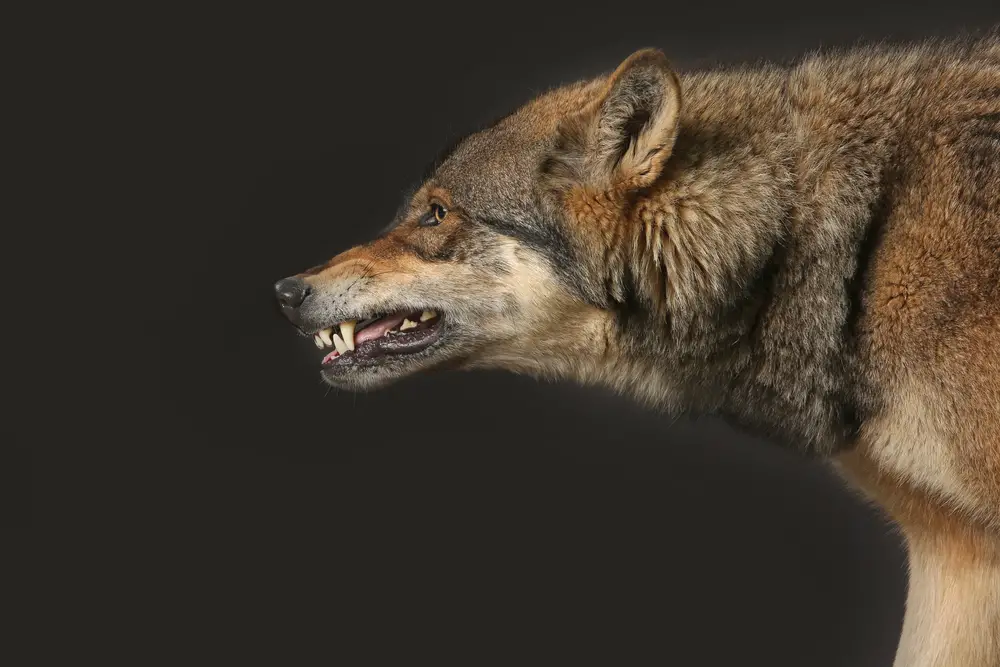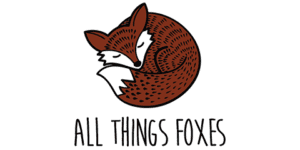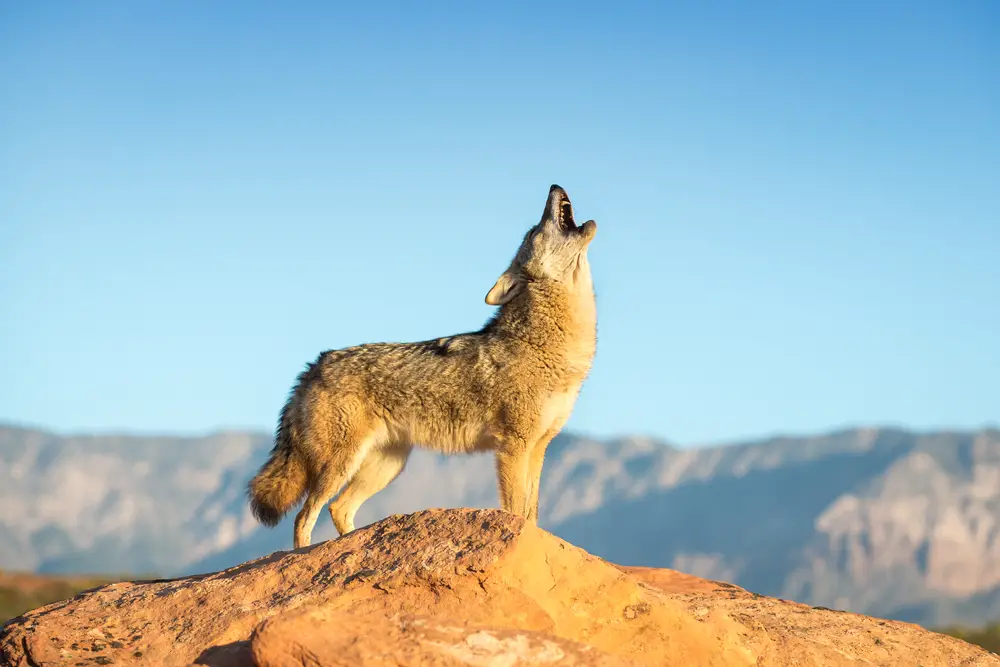Learning the correct names for both wolves (Canis lupus) and coyotes (Canis latrans) will show you that these two animals are related to one another.
Many people don’t know this and only know about wolves being ancient ancestors to dogs.
However, wolves and coyotes are actually very similar and closely related. In fact, the coyote is considered the closest ancestor to wolves. They can interbreed with one another and produce viable offspring that are still fertile, known as coywolves.
But does this mean that wolves won’t hunt and eat (see also What Do Wolves Eat) coyotes? Today we find out once and for all.
DNA analysis has shown us that the wolf is an ancestor of the coyote, much like they are of the dog. However, unlike wolves and dogs, wolves and coyotes can be distinguished through DNA analysis.
However, there seem to be a few distinct differences between wolves and coyotes. One that sticks out to us is the fact that wolves are social animals traveling in family packs, while coyotes are considered more of a loner animal. ‘
Wolves travel with two-parent animals and all of their offspring that haven’t broken away from the pack yet. On the other hand, coyotes live on their own except for during the breeding season.
This was believed to be true until research at the Yellowstone National Park showed that coyotes are actually social animals when they’re not in danger of being hunted by humans. Here they travel in packs, similar to wolves, of their family unit.

However, the majority of wild coyotes will still travel alone due to the threat of being hunted. They’re less likely to be caught and killed when they travel alone as they can’t be heard or seen as easily.
Unfortunately, traveling alone can put coyotes in more danger – just not with humans.
What animals hunt and eat coyotes?
Coyotes are considered one of America’s top predators, but they are still small animals. This means that they often fall victim to larger carnivores, such as some that we will look at below.
Mountain lions
The mountain lion is a top predator and can reach lengths up to 8 feet, with a weight of 136 pounds. Mountain lions are powerful hunters and will eat anything that they find, including unlucky coyotes who were in the wrong place at the wrong time.
Brown bears
These bears can stand taller than 8 feet and weigh an amazing 700 pounds. In comparison, the small 20 to 50-pound coyote doesn’t stand a chance if a brown bear wants to take them as their victim. Coyotes aren’t a bear’s first choice of meal, but they will eat them if desperate.
American alligators
Another large predator, the American alligator measures in at around 15 feet long with a weight of up to 1,000 pounds. They’re often found in swamps and waterways, and they often successfully ambush their prey when they least expect it. This could be a coyote drinking from the water.
Wolves
Yes, that’s right – wolves do hunt and eat coyotes. Wolves are the larger relative of the coyote, measuring around 7 feet with a weight between 40 and 175 pounds. Wolves won’t actively seek out coyotes to hunt, but they will eat them if there is no other food available.
Why do wolves hunt and eat coyotes?
Let’s start off this by saying that wolves do not often hunt coyotes, and if there is another food source available, they will leave their ancestors alone. However, wolves are wild animals and therefore often strapped for food, often starving until they get desperate.
At this point, a wolf will need to get a source of meat as soon as possible. Not only is it this wolf that is starving to death, but also their entire family pack. To avoid their young cubs going hungry, wolves will sometimes take desperate action and hunt coyotes.
Another reason why wolves might hunt coyotes is that they see them as a threat. Coyotes are smaller than wolves, but if they’re in a larger pack and the wolf feels outnumbered, things can quickly turn ugly.
Wolves have the size advantage over the coyote, meaning that they will often win a fight with a pack of coyotes.
Summary
To answer your original question, wolves do hunt and eat coyotes, although this is rare. Coyotes are not wolves’ first choice of meals and therefore will only be eaten by them in a desperate situation.
Unless the wolf feels threatened or is starving, they generally won’t hunt a coyote.
Unfortunately, due to their size and tendency to live alone, coyotes are subject to many larger carnivores – not just wolves. Brown bears, American alligators, and mountain lions are just some of the top predators that have been known to hunt coyotes and eat them.

